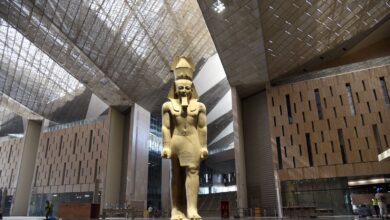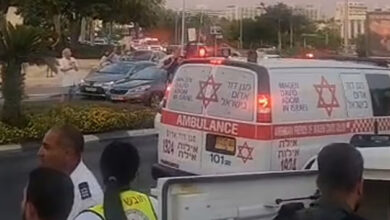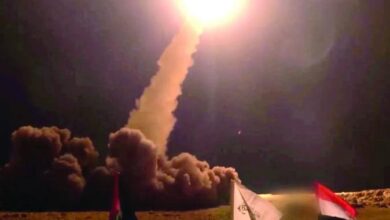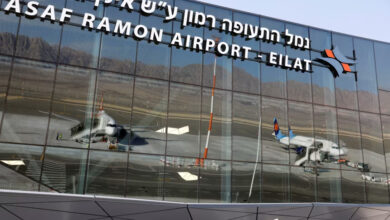Sanaa — Yemeni police opened fire on protesters in Sanaa and Taiz on Tuesday, killing at least three people, as protesters tried to escalate their campaign to end President Ali Abdullah Saleh's 32-year rule.
The clashes came as Gulf mediators met with a government delegation in Abu Dhabi to discuss a transfer of presidential powers in the poor Arab state, strategically important in the US-led fight against Al-Qaeda.
The meeting in the United Arab Emirates capital ended with only a brief statement saying the talks had been "constructive, reflecting the desire of the parties to arrive at an agreement," though the opposition was not itself present.
Two people died and nearly 100 were hit by bullets when riot police clashed with protesters marching toward Sanaa's main Zubeiri street, near the home of vice president Abd-Rabbu Mansour Hadi, medic Mohammed Qobati said.
Protesters stoned the riot police and set fire to a security vehicle, witnesses said. Al-Jazeera television showed medics tending to dozens of wounded covered in blood.
State media said Saleh ordered an investigation into the incident, blaming opposition party activists.
It said they kidnapped 10 members of the anti-riot police and wounded 30 in attacks on soldiers and passersby. "The opposition charged infiltrators with opening fire from houses on a march at Sitteen Street," 26 September website said.
A Reuters witness said riot police opened fire after protesters, who were blocked from marching any further by a checkpoint, began throwing bags of dye at soldiers from overlooking buildings and chanting anti-Saleh slogans.
The demonstrators have so far mainly been confined to an area around Sanaa University, where they have been camped out since February to press for political reform, while Saleh supporters have often gathered in other parts of the city.
At least one person was shot dead and another wounded in Taiz, south of Sanaa, as protesters across the country tested security forces' limits after three months of demonstrations demanding Saleh's ousting. Police opened fire in Taiz when protesters burned tires in the street.
Opposition sources said security forces arrested a well-known television presenter at Sanaa airport who quit state television for an opposition channel run by tribal chief Hamid al-Ahmar. Security officials were not available for comment.
The UN Security Council was due to meet from 1930 GMT to discuss the situation in Yemen, where Western and Gulf Arab allies fear a prolonged standoff could lead to clashes between rival military units in Sanaa and elsewhere.
"They (protesters) are resorting to these tactics to try to escalate the situation because they feel like their demands are not being met," said Mohammed al-Mohammedi, a protester in Taiz.
Protesters shouted orders to salute soldiers who belonged to a battalion loyal to General Ali Mohsen, who has sent troops to protect demonstrators in Sanaa, as they marched past an army post manned by his troops.
Protesters in Sanaa and the Red Sea port of Hudeida have tried to march outside their traditional protest zones in recent days, prompting clashes with police who sought to pen them back.
Both Western and Gulf Arab allies have tried without success to broker a resolution involving a transition of power from Saleh, who has led the Arabian Peninsula state for 32 years. He says he wants a handover, but only to "safe hands."
Western countries and Arab neighbors say they fear sustained clashes in the mountainous country where Saleh has already lost control of several provinces would cause chaos that could benefit an active Al-Qaeda wing operating in Yemen.
Russian Foreign Minister Sergei Lavrov said the Yemeni opposition should be careful not to hold back from talks in the hope of getting foreign help to topple the government.
"That is a very dangerous logic which can cause a chain reaction," he said on a visit to Serbia. "All those responsible, particularly members of the UN Security Council, must not opt for conflicts but for dialogue."
GULF TALKS
Gulf Arab states stepped in this month with an offer to mediate in Yemen after Western-brokered talks stalled.
The opposition, who initially rejected Gulf-led talks because they had not set a departure timeframe for Saleh, met Gulf ministers separately in Riyadh on Sunday.
Protesters expressed hopes the talks in Abu Dhabi would lead somewhere. "We have great hopes that the Abu Dhabi meeting will extract a clear commitment for Saleh to leave," said Meshaal Mujahid, a protest organizer in Sanaa.
But he said the protest movement planned to escalate their campaign with mass strikes.
The government delegation in Abu Dhabi included Foreign Minister Abubakr al-Qirbi and Abdel-Karim al-Eryani, a former prime minister and foreign minister popular with Washington.
Saleh, whose term ends in 2013, has warned of civil war and the break-up of the country if he is forced out.
More than 117 protesters have been killed in clashes with security forces since January. A US-based media watchdog said a Yemeni journalist for an Islamist opposition television channel was missing after being summoned by authorities.




